The AMD Ryzen Threadripper 1950X and 1920X Review: CPUs on Steroids
by Ian Cutress on August 10, 2017 9:00 AM ESTGrand Theft Auto
The highly anticipated iteration of the Grand Theft Auto franchise hit the shelves on April 14th 2015, with both AMD and NVIDIA in tow to help optimize the title. GTA doesn’t provide graphical presets, but opens up the options to users and extends the boundaries by pushing even the hardest systems to the limit using Rockstar’s Advanced Game Engine under DirectX 11. Whether the user is flying high in the mountains with long draw distances or dealing with assorted trash in the city, when cranked up to maximum it creates stunning visuals but hard work for both the CPU and the GPU.
For our test we have scripted a version of the in-game benchmark. The in-game benchmark consists of five scenarios: four short panning shots with varying lighting and weather effects, and a fifth action sequence that lasts around 90 seconds. We use only the final part of the benchmark, which combines a flight scene in a jet followed by an inner city drive-by through several intersections followed by ramming a tanker that explodes, causing other cars to explode as well. This is a mix of distance rendering followed by a detailed near-rendering action sequence, and the title thankfully spits out frame time data.
There are no presets for the graphics options on GTA, allowing the user to adjust options such as population density and distance scaling on sliders, but others such as texture/shadow/shader/water quality from Low to Very High. Other options include MSAA, soft shadows, post effects, shadow resolution and extended draw distance options. There is a handy option at the top which shows how much video memory the options are expected to consume, with obvious repercussions if a user requests more video memory than is present on the card (although there’s no obvious indication if you have a low-end GPU with lots of GPU memory, like an R7 240 4GB).
To that end, we run the benchmark at 1920x1080 using an average of Very High on the settings, and also at 4K using High on most of them. We take the average results of four runs, reporting frame rate averages, 99th percentiles, and our time under analysis.
All of our benchmark results can also be found in our benchmark engine, Bench.
MSI GTX 1080 Gaming 8G Performance
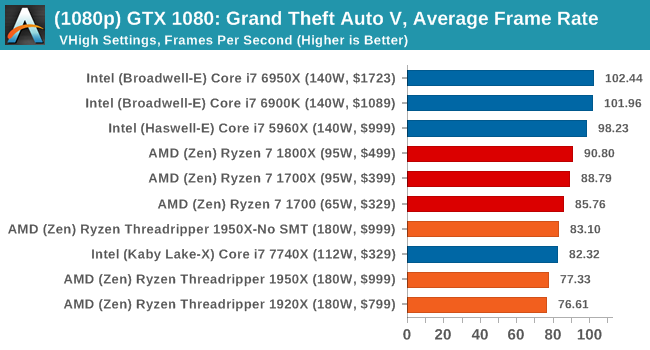
1080p

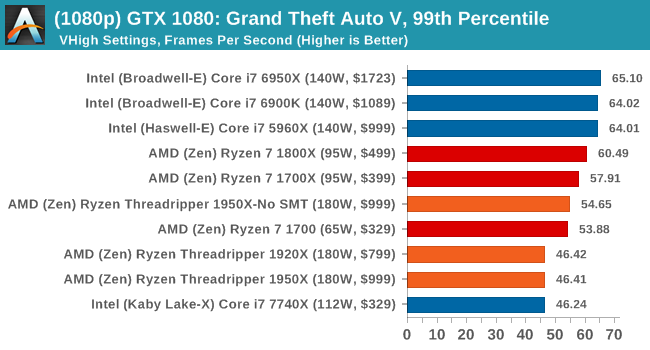
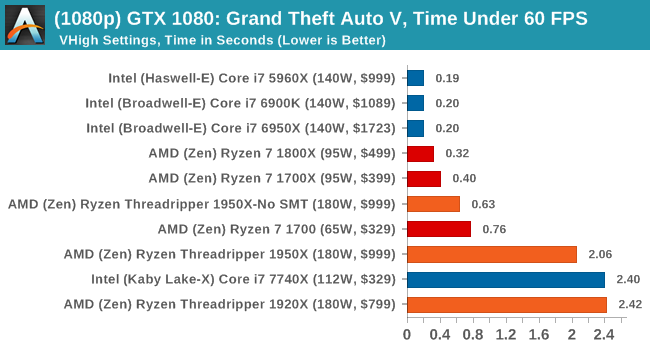
4K
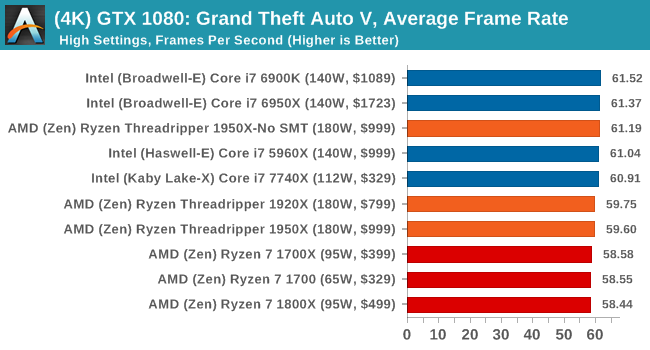
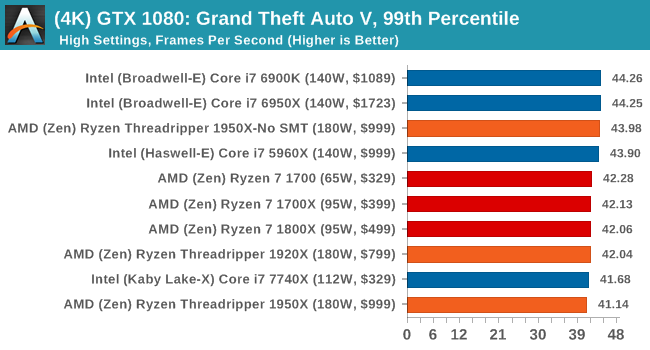
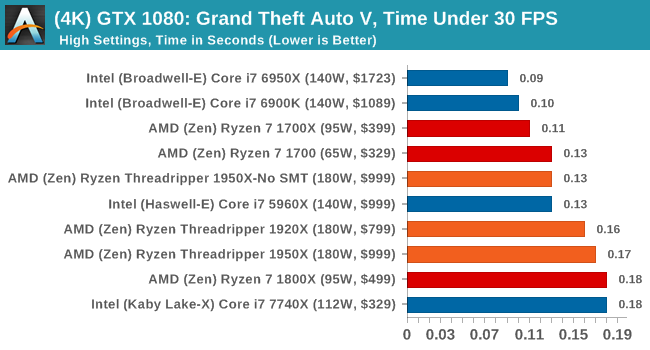
ASUS GTX 1060 Strix 6G Performance
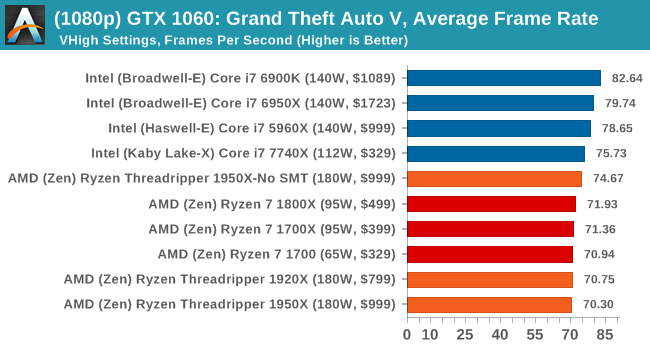
1080p

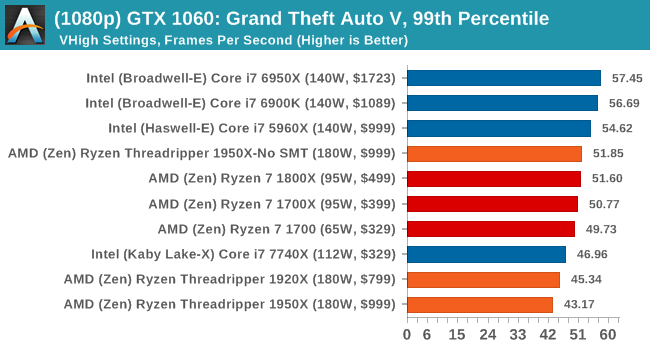
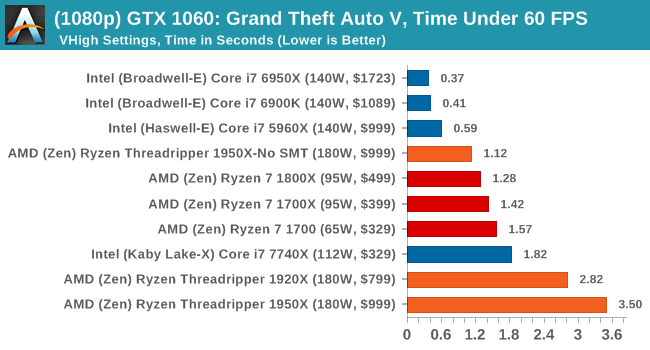
4K
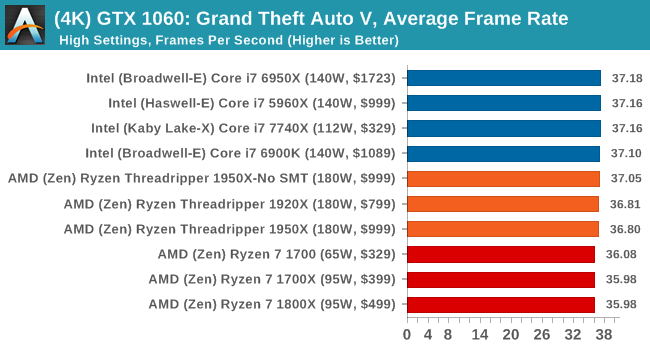
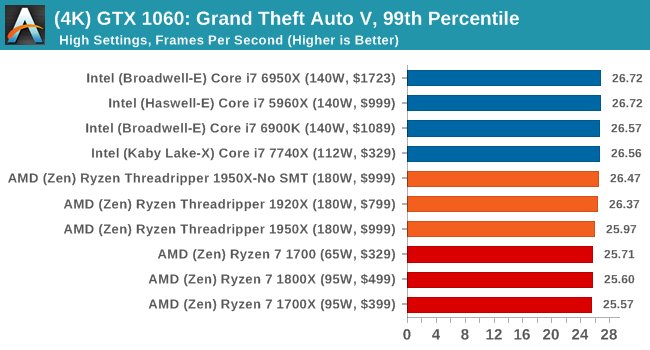
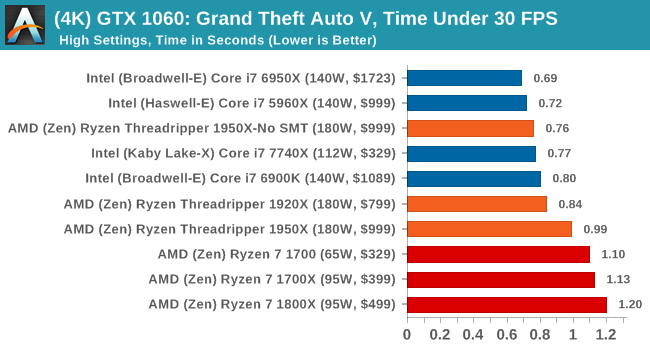
Sapphire Nitro R9 Fury 4G Performance
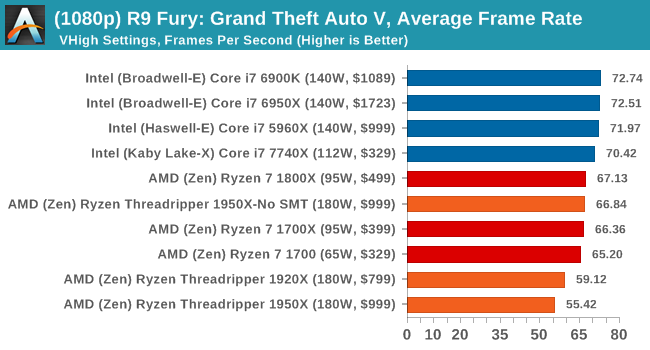
1080p

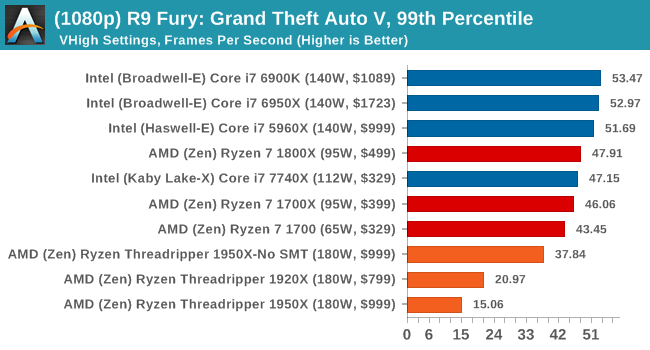
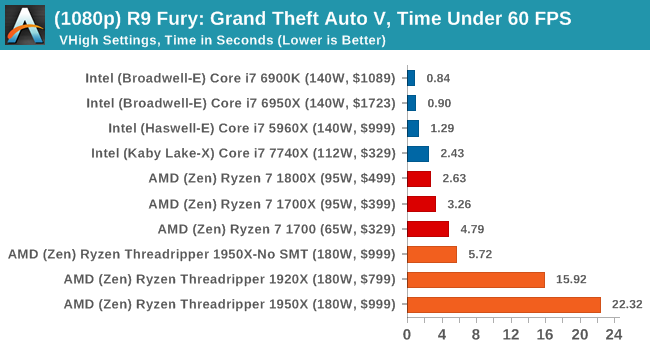
4K
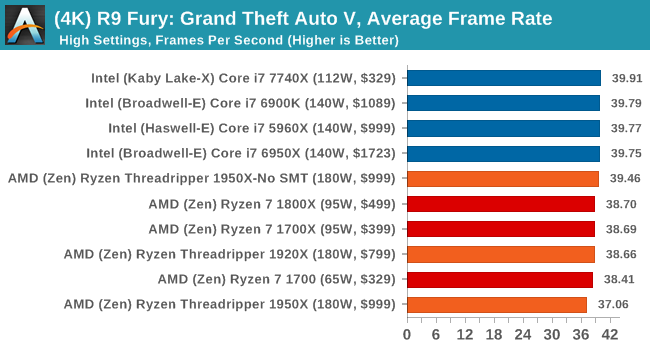
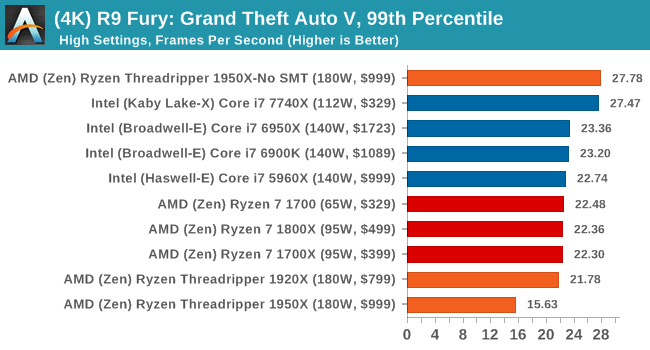
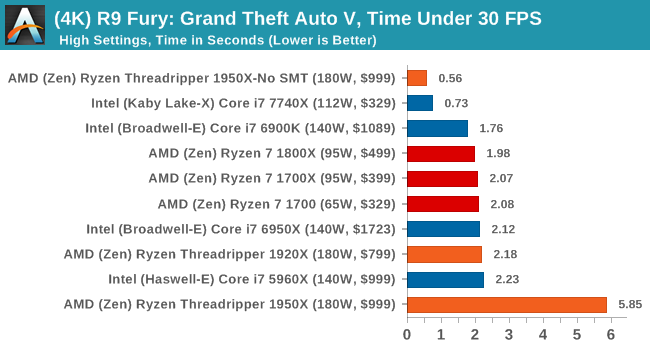
Sapphire Nitro RX 480 8G Performance
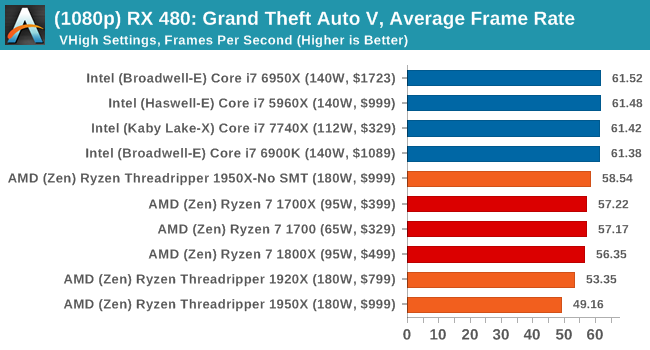
1080p

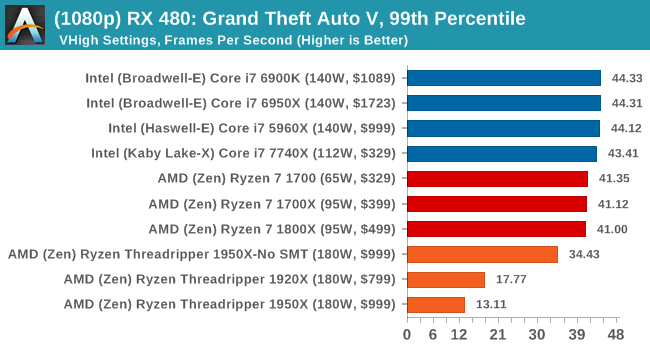
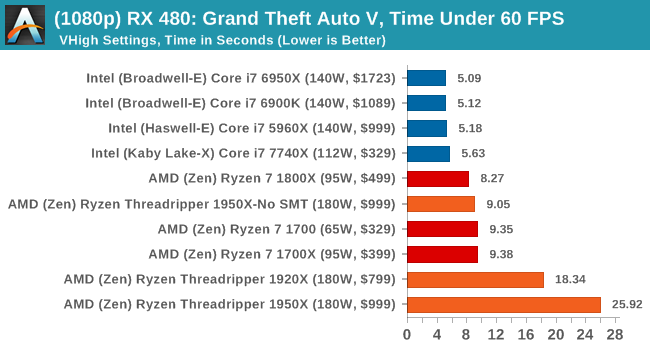
4K
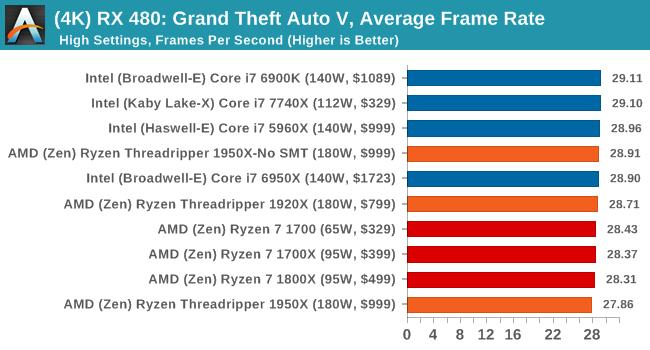
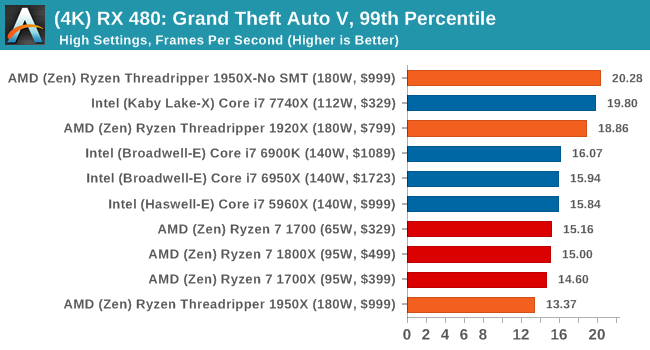
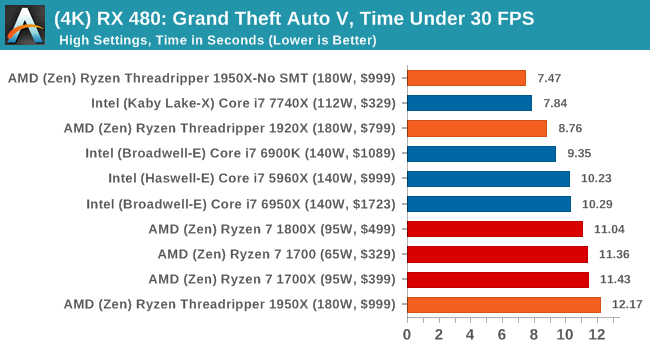
Depending on the CPU, for the most part Threadripper performs near to Ryzen or just below it.


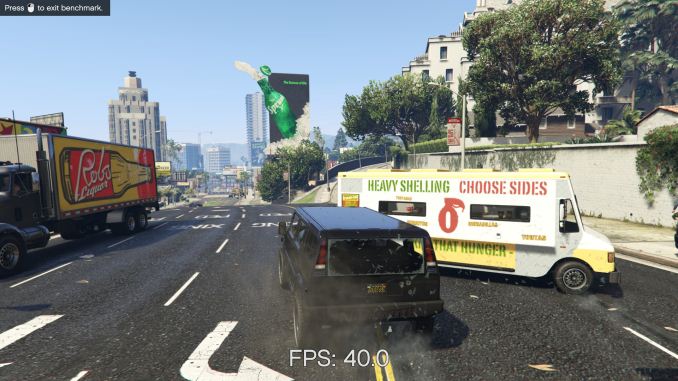
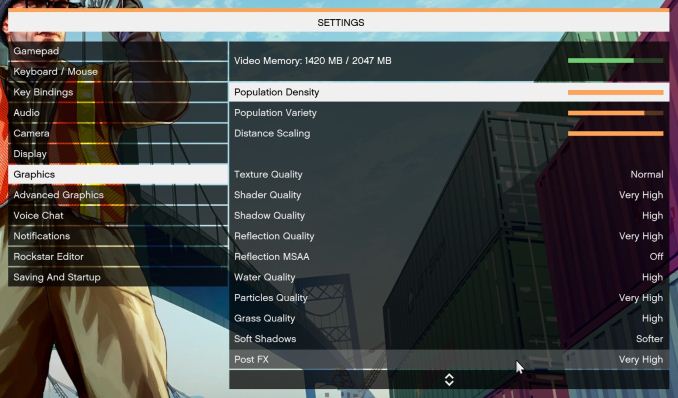
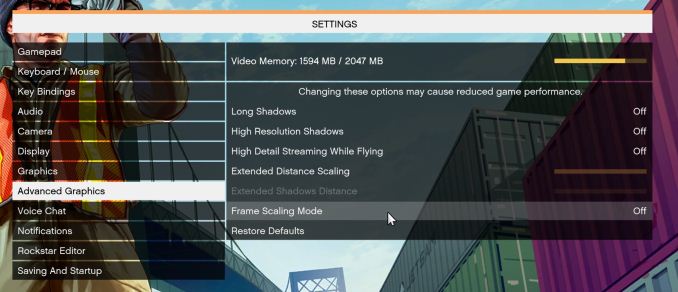








347 Comments
View All Comments
verl - Thursday, August 10, 2017 - link
"well above the Ryzen CPUs, and batching the 10C/8C parts from Broadwell-E and Haswell-E respectively"??? From the Power Consumption page.
bongey - Thursday, August 10, 2017 - link
Yep if you use AVX-512 it will down clock to 1.8Ghz and draw 400w just for the CPU alone and 600w from the wall. See der8auer's video title "The X299 VRM Disaster (en)", all x299 motherboards VRMs can be ran into thermal shutdown under avx 512 loads, with just a small overclock, not to mention avx512 crazy power consumption. That is why AMD didn't put avx 512 in Zen, it is power consumption monster.TidalWaveOne - Thursday, August 10, 2017 - link
Glad I went with the 7820X for software development (compiling).raddude9 - Thursday, August 10, 2017 - link
In ars' review they have TR-1950X ahead of the i9-7900X for compilation:https://arstechnica.co.uk/gadgets/2017/08/amd-thre...
In short it's very difficult to test compilation, every project you build has different properties.
emn13 - Thursday, August 10, 2017 - link
Yeah, the discrepency is huge - converted to anandtech's compile's per day the arstechnica benchmark maxes out at a little less than 20, which is a far cry from the we see here.Clearly, the details of the compiler, settings and codebase (and perhaps other things!) matter hugely.
That's unfortunate, because compilation is annoyingly slow, and it would be a boon to know what to buy to ameliorate that.
prisonerX - Thursday, August 10, 2017 - link
This is very compiler dependent. My compiler is blazingly fast on my wimpy hardware becuase it's blazingly clever. Most compilers seem to crawl no matter what they run on.bongey - Thursday, August 10, 2017 - link
Looks like anandtech's benchmark for compiling is bunk, it's just way off from all the other benchmarks out there. Not only that, no other test shows a 20% improvement over the 6950x which is also a 10 core/20 thread cpu. Something tells me the 7900x is completely wrong or has something faster like a different pcie ssd.Chad - Thursday, August 10, 2017 - link
All I know is, for those of us running Plex, SABnzbd, Sonarr, Radarr servers simultaneously (and others), while encoding and gaming all simultaneously, our day has arrived!:)
Ian Cutress - Thursday, August 10, 2017 - link
We checked with Ars as to their method.We use a fixed late March build around v56 under MSVC
Ars use a fixed newer build around v62 via clang-cl using VC++ linking
Same software, different compilers, different methods. Our results are faster than Ars, although Ars' results seem to scale better.
ddriver - Friday, August 11, 2017 - link
Of every review out there, only your "superior testing methodology" presents a picture where TR is slower than SX.